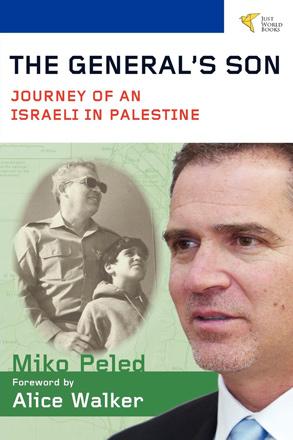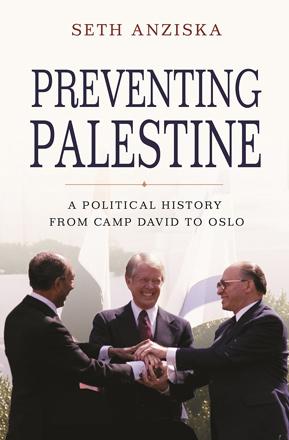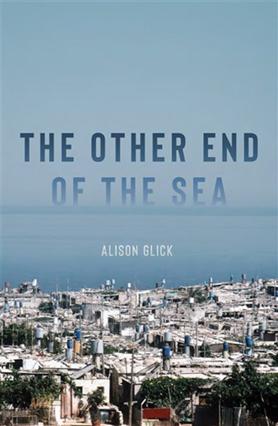You are here
Advocating a shared homeland
By Sally Bland - Jul 19,2020 - Last updated at Jul 19,2020

The General’s Son: Journey of an Israeli in Palestine
Miko Peled
US: Just World Books, 2012
Pp. 221
The journey named in the subtitle of this book is both a physical/geographic and a political/moral one. Born into the Israeli establishment, the author, Miko Peled, is the son of Matti Peled, one of Israel’s top generals who was a prominent advocate of peace with the Palestinians from the early 1970s until his death. The senior Peled studied Arabic, and upon retirement from the army, pursued an academic career as a professor of Arabic literature at Tel Aviv University.
Throughout, he remained a staunch Zionist, considering the two-state solution the best option for both Israel and the Palestinians. In the mid-1970s, he called on the Israeli government to negotiate with the PLO, and began meeting with important PLO leaders, including the late chairman Yaser Arafat. His son describes the consequences: “It wasn’t long before friends stopped inviting him and my mother to social events. He became a political and social pariah.” (p. 57)
The obvious question posed by the book is whether Miko will follow in his father’s footsteps. This is the political/moral journey he outlines, combining the events of his personal life with those in the Middle East.
Raised in a West Jerusalem home where it was a given that Israel should return the West Bank and Gaza Strip to the Palestinians, Miko admired and shared his parents’ leanings, but was not inclined to duplicate his father’s activism. Still, his Israeli classmates called him out as an “Arab lover”, although he had not a single Palestinian friend. Miko’s account of his childhood is fascinating, especially as he describes the diverse backgrounds of his grandparents and gives personal glimpses of prominent Israelis. It is also remarkable in revealing how separate the two societies were.
After a rather harrowing training experience in the Israeli army, Miko is attracted to the art of karate: “Unlike military training, where the aim is to break you down and then turn you into a killer, Sensei Dan [his karate instructor in Jerusalem] wanted to build us up and develop us as confident and compassionate people.” (p. 90)
Eventually, Miko establishes a successful karate school in Southern California, but he is ever-alert to developments “back home”. The fall of 1977 was a turning point: Two young Palestinians blew themselves up in a Jerusalem street, killing his niece, Smader. “Up to that point, I was fine with the decision I had made many years earlier not to be active politically, but after Smader was killed I was no longer content to sit still.” (p. 107)
From then on, Miko’s political/moral journey accelerates. He seeks out Jewish-Palestinian dialogue groups in San Diego, and reads the books of the Israeli “New Historians” at the suggestion of his brother Yoav, a political science instructor at Tel Aviv University. Dialoguing and reading expose him to the other side of the story, most crucially, the events of 1948.
He gains a real friend in Nader Albanna, a Muslim born in Nazareth, and they embark on a joint project to donate wheelchairs to Palestinian and Israeli patients. Soon, the regular visits Miko makes to his family in Jerusalem expand to include his new Palestinian contacts. He writes very honestly about battling the fears that he had unconsciously absorbed and is soon venturing into areas considered off-limits to Israeli Jews, including Area A of the West Bank: “I was beginning to believe that the security reasons cited by Israeli officials for the wall and the checkpoints, which were keeping us from visiting and getting to know people on the ‘other side’ were merely scare tactics designed to prolong the conflict.” (p. 138)
Visiting Beit Ummar, Bil’in, Nabi Saleh, Ramallah, Gaza and many other Palestinian communities, participating in their non-violent resistance activities, and teaching karate classes in Duheisheh refugee camp, pushed Miko into new discoveries about himself and the conflict. He had long conversations with community leaders, including a number of ex-long-term prisoners in Israel jails, adding to the narrative of the injustices done to the Palestinians and the resilience they displayed. In the author’s words: “cracks were forming in my conviction that there was a need or even a justification for a state that was Jewish”. (p. 212)
In the end, Miko did follow his father’s footsteps, but also went beyond: “I came to the realisation that establishing a secular, pluralistic democracy that includes all of Palestine/Israel was the best thing for Israelis and Palestinians and that the two-state solution was not a solution at all… My views… changed largely as a result of my travels throughout the West Bank and having witnessed Israel’s tremendous investment in infrastructure to attract Jewish settlers and thereby exclude Palestinians — to whom the land belongs… I became convinced that universal freedom in a shared homeland was the best thing for both peoples.” (pp. 215-6)
“The General’s Son” is packed full of facts, emotions and discoveries. It is a highly readable contribution to a major debate. Miko’s intellectual and moral honesty, and the way he intertwines details of his own life with vital questions of the Palestinian-Israeli conflict, make it more compelling than a straight-up political testimony. There have been many changes in the situation since the book was published, but they only make its message more important.
Related Articles
Preventing Palestine: A Political History from Camp David to OsloSeth AnziskaPrinceton/Oxford: Princeton University Press, 2018Pp.435 I
Ann Sawalha’s memoir tells many stories, all of them spin-offs from the 50-year-long love story which began when she met Sami Sawalha in the Detroit Hospital where she was training as a nurse. Their love led her into marriage and a new life in Jordan, and weathered the storms of cultural differences, family crises and recurring regional crises from the 1950s into the 2000s.
This is a love story with more than one twist. Nothing is completely standard or expected, whether the characters, setting, plot events or conclusion. “The Other End of the Sea” is American writer Alison Glick’s first novel, and she bases it largely on her own experience living in Palestine and Syria in the 1980s and early 1990s.
















